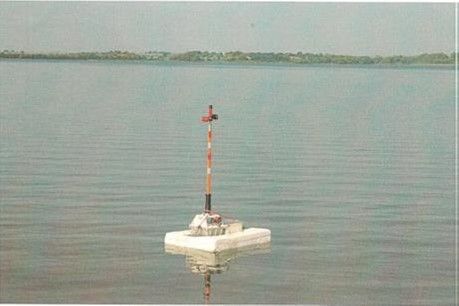MWCD Actively Engaged in Restoring Legendary Status of the American Chestnut
The American chestnut was once the dominant economically and ecologically important tree species in eastern North America. Among the tallest, largest, and fastest-growing trees, and often found in both urban and rural settings, nearly four billion American chestnut trees covered the region. Facing extinction from a fungal blight in the early 20th century, it has become the embodiment for landscape-level ecological disasters. By the 1930s, entire ecosystems collapsed, and economies shifted dramatically. The local traditions and culinary history that centered around the American chestnut faded into the past along with the deaths of millions of trees.
In the aftermath of the disease that swept across Appalachia, there still were some remnant trees struggling to survive. These trees, more of a scrubby bush than an actual tree, were living genetic stock that offered hope of reintroducing the chestnut into our landscape.
Since the 1980s, The American Chestnut Foundation (TACF) has been working to create a blight-resistant American chestnut tree by crossing it with blight-resistant Chinese chestnut varieties. Carefully controlled pollination and selection of trees that exhibit blight resistance, nut quality and timber producing characteristics have brought us to the point of experimental reintroduction into forested areas. Developing trees with good characteristics in isolation is only half the battle. The other half is studying how these seedlings survive in a more natural landscape.
The Ohio chapter of TACF has participated in this national effort and has also conducted independent chestnut breeding research with Dr. Greg Miller of Ohio TACF and Empire Chestnut Company, Carroll County. Miller has been breeding and selecting chestnut trees with tall timber-type growth form, blight resistance, and other beneficial characteristics for over 40 years.
MWCD has the unique ability to plant, monitor, and manage test plantings within the watershed. These small plots help managers assess tree survival and growth and are an important first step in better understanding how they can be part of Ohio’s forests once again.
In April 2022, MWCD planted 200 chestnut trees – 100 from TACF’s backcross breeding program, and 100 from Empire Chestnut Company. These trees were planted near Tappan Lake in Harrison County. MWCD’s Conservation Department, in partnership with TACF, Empire Chestnut Company, and researchers from The Ohio State University will be monitoring the growth and survival of the trees as they start to fill the canopy. When these trees reach nut-bearing age (approximately five years), MWCD will survey the surrounding forests and fields for evidence of natural regeneration.
These renewed chestnut trees have quite a lot to offer beyond timber, wood products, and food. By reintroducing the chestnut into the forest, we make our forest ecosystems more resilient, more biodiverse, and able to withstand future challenges. MWCD is proud to participate in this critical research and long-term forest management for the greater good of our Ohio landscapes, wildlife, and people.
These trees and their seedlings will become part of our diverse Ohio forests filling that ecological niche once lost. MWCD is making the important first steps needed to achieve sustainable chestnut timber harvest in Ohio. This will ultimately return chestnut wood products to local markets for the first time in over 100 years.
Matt Thomas Chief of Conservation
This article was featured in MWCD’s quarterly newsletter, LakeViews. To join our LakeViews mailing list, call 330-343-6647 or visit MWCD.org























